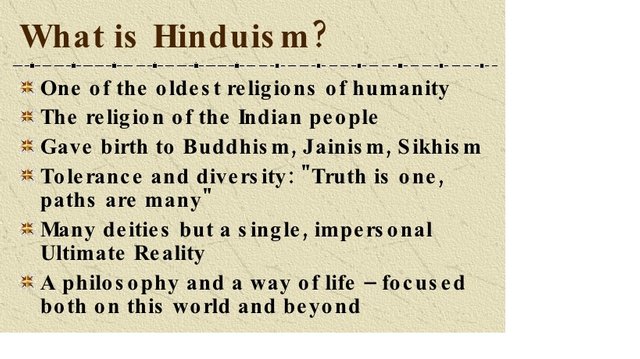Who is a Hindu?
I have tried to bridge foundational ideas which underpin the Hindu identity, such as the connection with (Ancient) India, the Vedas, its subsequent literature, its critique of, and all the multifarious sects and traditions that have spawned thereof, while arguing for a Hindu identity.
A lot of ink has flowed over the question how to define Hindu. When the question of who is a Hindu is discussed today, we get a multitude of confused and contradictory answers from both Hindu laypersons and from Hindu leaders. There is no other religion for which the question of definition is so difficult. A Roman Catholic could be defined as a person who is baptized by a priest ordained within an apostolic succession going back to Jesus, and who accepts the Nicean Creed and the authority of the Bishop of Rome. A Muslim is defined by the Muslims themselves as one who has affirmed the Islamic creed: that there is no god beside Allah and that Mohammed is Allah’s prophet. A Buddhist is one who has taken the triple refuge into the Buddha, his teachings and his community.
Some claim that one is 'born a Hindu', but there are now many Hindus of non-Indian descent. Others claim that its core feature is belief in an impersonal Supreme, but important strands have long described and worshipped a personal God. Outsiders often criticise Hindus as being polytheistic, but many adherents claim to be monotheists. Some say that Hindus define orthodoxy as compliance with the teachings of the Vedic texts (the four Vedas and their supplements).
Who is Hindu then?
Hinduism's early history is the subject of much debate for a number of reasons. Firstly, in a strict sense there was no 'Hinduism' before modern times, although the sources of Hindu traditions are very ancient. Secondly, Hinduism is not a single religion but embraces many traditions. Thirdly, Hinduism has no definite starting point. The traditions which flow into Hinduism may go back several thousand years and some practitioners claim that the Hindu revelation is eternal. Although there is an emphasis on personal spirituality, Hinduism's history is closely linked with social and political developments, such as the rise and fall of different kingdoms and empires. The early history of Hinduism is difficult to date and Hindus themselves tend to be more concerned with the substance of a story or text rather than its date.
There are two definitions of the term Hindu. One definition is the geographical, which refer to people living across the River Indus or Sindhu, in the north of India, around which the Vedic religion is believed to have originated. Sindhu is a Sanskrit word which goes thus that anyone who lives along the banks and to the east of river Indus below the Himalayas is a Hindu. The region of Sapt Sindhu was called Hapt Hindu in the Zend Avesta. In another inscription of the Persian Emperor Darius 1 around 600 BCE, he referred to this place as Hindush referring to areas around Indus or Sindhu. The equivalence of ‘Hindu’ and ‘Sindhu’ comes from the regular phonetic relation between the Indo-Aryan and Iranian branches of the Indo-European language family: initial [s] is retained in Indo-Aryan but changed to [h] in Iranian, while aspirated voiced stops like [dh] are retained in Indo-Aryan but lose their aspiration in Iranian. So the river Sindhu becomes Hindu for the Persians. But this term gained popularity only after the Arabic poets in 8th and 9th century and of course after the Islamic invasions in 11th and 12th century AD.
The other definition of ‘Hindu’ is available in the holy text the Merutantra, where the word ‘Hindu’ is defined as ‘Hinani Gunani dushyati iti Hindu.’ Meaning that which destroys or dushyati the inferior Raja-Tama components or gunas (subtle spiritual components) is a Hindu. Thus, to be a Hindu is to follow a way of life that enhances the spiritually pure Sattva component and Sattva predominant qualities like love, humility, honesty, tolerance, courage, expansiveness, etc. and overcomes the spiritually impure Raja-Tama predominant attitudes like anger, attachment, jealousy, greed, lust, pride etc. Although it is not easy to define Hindu, we can say that it is rooted in India, most Hindus draw on a common system of values known as dharma.

How is Hinduism unique from other religions?
Hinduism cannot be neatly slotted into any particular belief system. Unlike other religions, Hinduism is a way of life, a Dharma, that is, the law that governs all action. It has its own beliefs, traditions, advanced system of ethics, meaningful rituals, philosophy and theology. The religious tradition of Hinduism is solely responsible for the creation of such original concepts and practices as Yoga, Ayurveda, Vastu, Jyotish, Yagya, Puja, Tantra, Vedanta, Karma, etc.